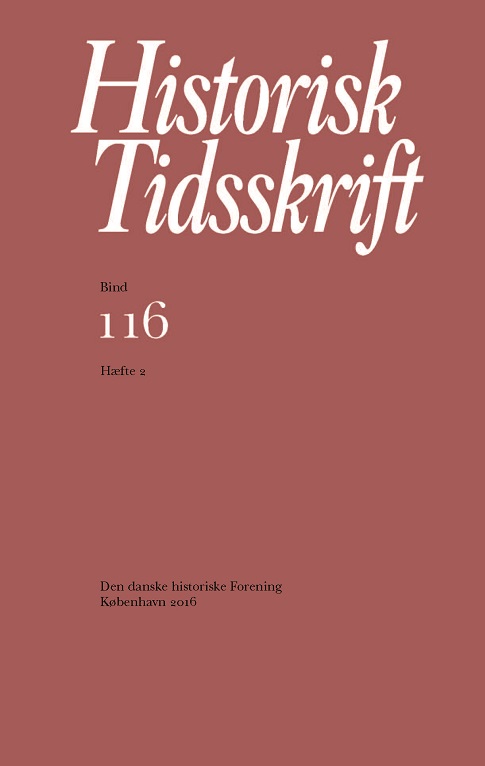Pietisme og krise. Den Halleske og radikale pietisme i den danske helstat under Christian 6.
DOI:
https://doi.org/10.7146/ht.v116i2.56841Resumé
Pietism and Crisis. Halle Pietism and Radical Pietism in Denmark-Norway during the Reign of Christian 6.
This article examines the responses to the endeavours of Christian 6 (1730-1746) to transform his realms of Denmark and Norway into a Pietist model state. These efforts caused social disturbances and an ecclesiastical crisis bordering on a political and constitutional crisis. One reason behind the strong reactions was the dominant position of traditional Lutheranism. Most inhabitants had rarely experienced any forms of nonconformity. A further reason was the absolute constitution, The Royal Law (1665), that obliged the monarch to uphold the Augsburg Confession of Faith. Many orthodox theologians believed that Pietism was at odds with Augsburg Confession’s article 4 on justification by grace alone. Another point of criticism was that Pietist vicars refused parishioners routine absolution and that this intended „wake-up call“ caused melancholia among the population. The article studies Pietist meetings held in The Golden Ox, a tavern in the centre of Copenhagen. The vicar of the orphanage (Vaisenhus), Enevold Ewald, participated in the meetings but they were chaired by his mother-in-law, Marie Wulf. It is discussed whether these meetings were inspired by radical pietism. Arguments for a radical interpretation include the criticism levelled towards the orthodox vicars, and the view that one could only convert to true Christianity through an experience of inner light accompanied by physical trembling. It also documents the socially subversive potential of radical pietism: Millenarist ideas stipulated that with the second coming of Christ a radical change in the social order would occur, and that true converts would rule alongside Jesus Christ. Although Christian 6 and his queen, Sophie Magdalene, did not subscribe to radical Pietism, they exercised tolerance and even protection towards radicals like Johann Samuel Carl from Berleburg who became physician to the royal household. When, at the start of the 1740s, social ferment followed the propagation of Pietism, the government became increasingly nervous, investigating several cases, exiling radical leaders and erecting a General Church Consistory to keep an eye on developments. However, when Christian 6 passed away in 1746, everything settled down again. Still, the majority of the bishops in the twin kingdom were Pietists, and the king had placed many Pietist vicars, educated in Halle, in parishes throughout the realm. The article suggests that Pietism had long-term religious and cultural repercussions.
Downloads
Publiceret
Citation/Eksport
Nummer
Sektion
Licens
Ophavsret til bidrag i Historisk Tidsskrift tilhører forfatterne og Den danske historiske Forening som udgiver af Historisk Tidsskrift. For illustrationer gælder den ophavsret, som står anført i billedteksten. Ophavsretslovens almindelige bestemmelser gælder, hvilket vil sige, at ophavsretten gælder i 70 år efter forfatterens død. Bidrag i Historisk Tidsskrift må derfor, med forbehold for en ”moving wall” på tre år, frit downloades, læses, gemmes, anvendes og citeres (med kildeangivelse) i privat og videnskabelig sammenhæng, men de må ikke helt eller delvis genudgives af tredjepart, heller ikke i redigeret form, uden tilladelse fra forfatterne og Den danske historiske Forening. Henvendelse skal i så fald rettes til Historisk Tidsskrifts redaktion på histtid@hum.ku.dk.





